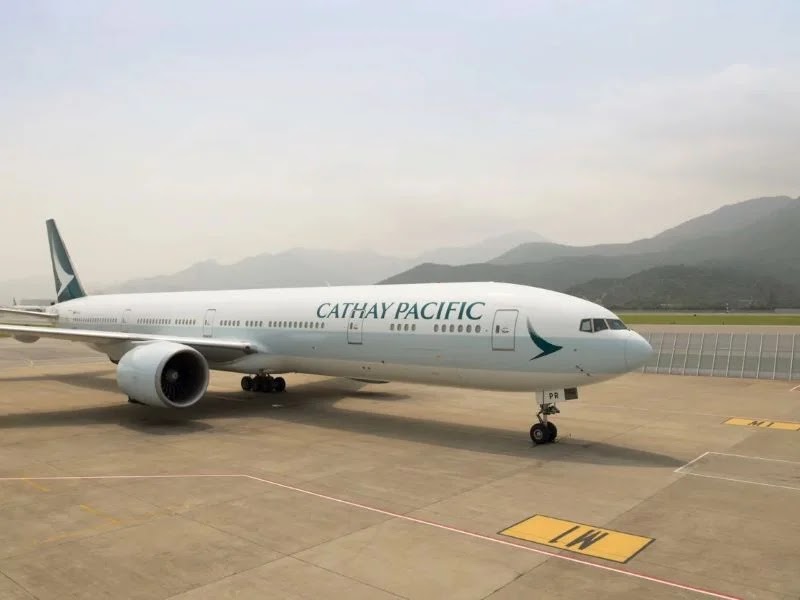HONG KONG — Hong Kong's flag carrier Cathay Pacific does not expect to return to pre-pandemic levels of flying for at least another two years in light of the sluggish recovery of air travel in Asia and Hong Kong's delicate status as a global hub.
The airline hopes to fully restore its pre-pandemic capacity by the end of 2024 or the beginning of 2025, according to Ronald Lam, chief customer and commercial officer at Cathay Pacific.
"We still have to look at the supply and demand situation, so it will take time to ramp up," he said. Cathay has been one of Hong Kong's biggest corporate casualties from the pandemic border closures, which have undermined the city's status as Asia's premier financial hub. Until last month Hong Kong followed China in implementing an incoming traveler quarantine and closing its borders to tourists. The restrictions grounded much of Cathay's passenger capacity, and the airline sent dozens of idle aircraft to the Australian desert to sit out the pandemic," Lam said.
Cathay and Hong Kong had suffered but welcomed an obvious pick-up in bookings for the rest of the year that has outpaced expectations since the government announced the end of hotel quarantine. But Lam said more people were booking to leave Hong Kong rather than fly in because of lingering restrictions, including PCR tests and bans from restaurants and bars for the first three days after arrival.
"The pent-up demand of the Hong Kong people has been unleashed. The demand from visitors has picked up. But it hasn't shown the full potential yet," he said.
Virgin Atlantic this month said it would leave Hong Kong, while Willie Walsh, the former head of British Airways who now runs the global airlines lobby group, recently said he believed Hong Kong had lost its status as an aviation hub.
"Hong Kong has lost its position and will struggle to regain it because other hubs have taken advantage of it," Walsh said. Lam disagreed, pointing at the expansion of the city's airport and "very strong backyard" of Chinese commercial hubs, and said Cathay's future is inextricably linked to Hong Kong's.
"I'm very confident. We've been behind in terms of opening up compared to many of our regional competitors. But I don't think we've lost anything structural. Yes, there are some people leaving Hong Kong, but I think they will come back," he said.
The Hong Kong government led a HK$39bn (US$5bn) bailout in June 2020 to keep Cathay afloat. As part of this, the government was able to appoint two observers to Cathay's board, sparking concerns about increasing government influence on the airline, which is already part-owned by Air China. Lam said he expected the observers to leave the board once the bailout is repaid.
Cathay, which falls under the colonial-era conglomerate Swire Group, has previously been at the center of political tensions after some staff participated in 2019's pro-democracy movement. The bailout was followed by a restructuring later that year when the airline slashed its workforce and closed its regional Cathay Dragon brand. The company is now attempting to rebuild its workforce after many pilots left owing to rigid quarantine rules during the pandemic.
Via FT

